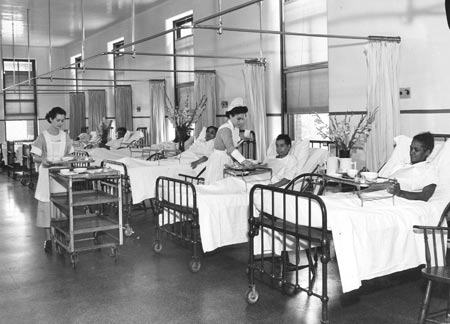
I’m writing this post on a key day for my wife Jasmin and I. Today is day 100 of her post aneurysm and double-stroke recovery. Day 100 of falling under the unexpected care of the UK’s National Health Service (NHS) and my professional and personal observations.
I’ve learnt to be a close observer of service delivery, processes, procedures, and operational characteristics. It’s after all been core to my professional and academic life for around 25 years. My biggest observation in my own engagement and based upon feedback from other service users and their relatives is that there’s a real disparity in the NHS between care givers and relatives. Some of this undoubtedly caused by budget constraints and the need to hit statistics.
My relationship with Jasmin’s carers is an emotional one. I must live out my married life in a goldfish bowl with little privacy and a great deal of matriarchy overwritten by rules from the 1950’s (don’t sit on the bed still applies) and a desire for management to control not only their staff but the relatives as well in their desire to make things ‘predictable’.
This has brought about a system where the relationship between the patient and their family has become transactional which clashes against the relatives needs for empathy and emotional understanding.
There are absolutely some staff members who remain emotive in their approach, but they tend to be the noticeable exception rather than the norm. I know this approach hurts many as their care instincts must become secondary but its endemic not of a breakdown in people but of the system itself. It’s reluctance to embrace modern trends, attitudes, and service-user expectations favouring instead percentages and statistics driven by political statements only highlight that drastic change is needed.
The NHS was introduced when times and society were very different, it was a post-war social experiment that worked very well whilst society followed predictable norms. Those norms have changed but the system hasn’t. It’s still a top-down hierarchical system where the consultants’ expect both other staff and the general public to treat them as gods, where matrons still try and rule the roost with an iron rod of ‘do as I say, or else’. These are antiquated expectations and out of sync with the modern service consumer.
The system has seen a drastic raise in GDP allocation, roughly 3.5% in 1950 to the more recent 7.1% allocation in 202 yet the public perception is that funding and service provision is falling.
Non-critical services are failing, care-in-the-community is a distant memory for many, geriatric care is a major public concern and yet the funding as a percentage of GDP has increased. It’s interesting as a side note to consider that since 2009/ 2010 funding has in real terms fallen from 7.6%. in 2018/ 2019 47% of all UK NHS trusts were working on an annual budget deficit of over £500 Million, with 67% of acute trusts in an annual deficit. Spend, despite the approximately £129 Billion, is still not considered adequate to maintain a day-to-day service.
My own experience has taught be to be extremely grateful for the critical care that my wife received but longer-term service provision is no longer fit for purpose. I will remain empathetic for those in the system that continue to care but as for the system itself and my day-to-day relationship? It will cease to be emotive and will become transactional.
As the NHS’s relationship with society is becoming unsustainable, we need to change our expectations of the system and our relationship with it. The fall in service provision, the reduction in overall spending as a percentage of GDP is going to place it under further strain. It’s essentially a floundering system that is overdue a major overhaul.